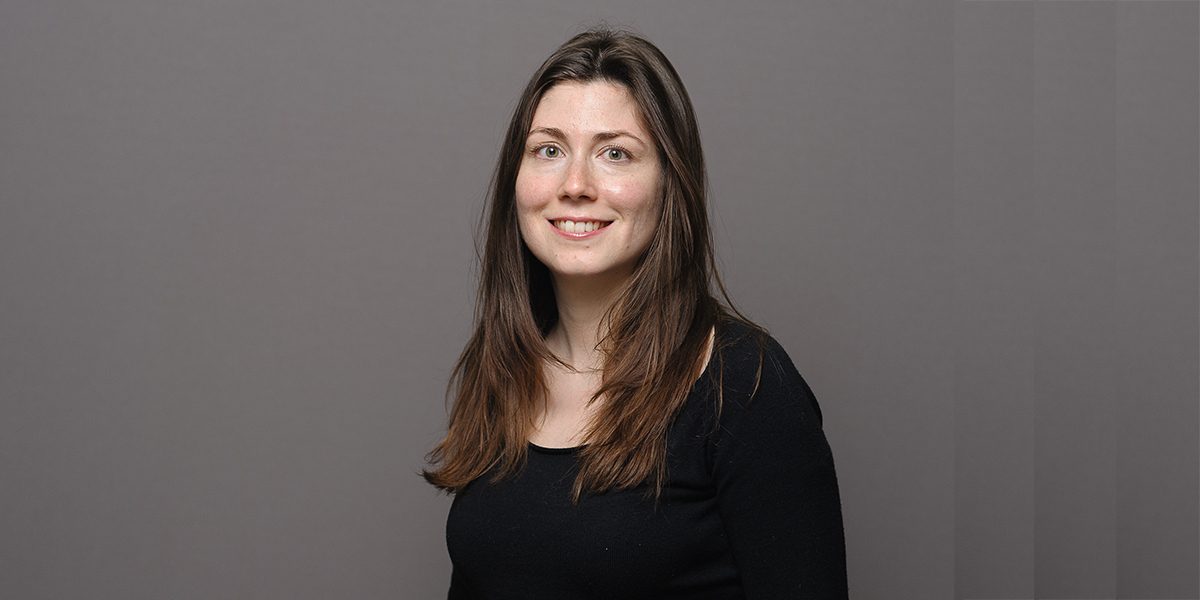
Alyssa Chase-Vilchez: Partnership-building and gender specific research to make the world healthier and safer for women
Meet Alyssa Chase-Vilchez, Global Women’s Health UK Programme Manager
How long have you been working at The George Institute?
Since October 2018.
What is your professional background?
The unifying theme of my work has been supporting women’s public health. I have done this in a wide variety of settings, ranging from government to hospitals to a small Bolivian non-governmental organisation.
I have a Master’s degree in epidemiology, and I like to inform my data analyses with an understanding of the patient experience. Because of this, my professional background has balanced quantitative analysis with community-facing public health work. For example, as a city research scientist at the New York City Department of Health and Mental Hygiene, I created a near real-time surveillance system for monitoring cases of intimate partner violence in emergency departments across the city. Both before and during my time working at the health department, I also volunteered with a sexual and domestic violence crisis programme, where I worked one-on-one with patients seeking emergency care to provide mental health counselling, safety planning, and referral services. Holding these two positions in parallel allowed me to use the patient perspective to meet broader, population-level needs.
What attracted you to working at The George Institute?
The George Institute’s mission to assess and develop innovative health services, especially in countries and communities where such services are limited, really resonates with me. Also, as someone with a strong interest in social entrepreneurship, I especially like how being based in Oxford simultaneously provides the opportunity to work at a university steeped in tradition with the Institute’s enterprising approach to tackling health challenges.
What are you currently working on?
I split my time between two roles - managing The George Institute for Global Health UK Women’s Health programme, and partaking in some of the research that falls under this stream.
On the managerial side of things, my main objective is to form interdisciplinary partnerships, both within the University of Oxford and externally, that will help advance the goals and reputation of our new global women’s health initiative. I also provide support (literature reviews, landscape scoping, etc.) to support funding applications, and manage the logistics of research meetings and collaboratives. On the research end of my job, I work with Elizabeth Millett, Sanne Peters, and Mark Woodward on conducting sex-disaggregated data analysis with the goal of identifying sex and gender differences in chronic disease risk factors and outcomes.
What is a recent highlight?
I really enjoy the partnership-building aspect of my managerial role, which allows me to meet incredible leaders in the field of women’s health! For example, as part of our work developing the jointly launched WHO/The George Institute Women and NCDs community of practice, Emma Feeny and I recently met with the first female surgeon of Sudan, Nahid Toubia, who after a long career as an advocate against female genital mutilation is now Director of the Institute for Reproductive Health & Rights in Khartoum.
What difference will this make to healthcare and why?
Creating genuine, equitable partnerships with leaders from low- and middle-income countries will help build research capacity in those countries, and also promote more inclusive public health decision-making on a global scale.
Why do you enjoy working at The George Institute?
There are so many intelligent, charismatic, and enterprising people here!
To explain to people what I do, I say….
I work with an organisation that uses data and patients’ experiences to make the world healthier and safer for women.
To unwind at the end of the day I….
I usually head to the gym or have a nice long walk with my flatmate’s dog, Professor.
My first job was….
After I completed my undergraduate studies, my first job was at the Anna Freud National Centre for Children and Families, where I assisted on a research project trialling a novel psychotherapy approach for women with postpartum depression.
My biggest achievement so far….
I am proud of the above-mentioned work that I have done providing counselling services to women and girls, and of the experiences that have evolved from this role. Last year, for example, I had the opportunity to train health practitioners in Bolivia on how they could promote safe, confidential disclosures of violence in healthcare settings and in the tools these providers could then use to support their patients.
That being said, there is still an incredible amount of work that needs to be done to ensure that women and girls are able to lead violence-free lives. One of my objectives, in line with the overall goals of The George Institute’s Women’s Health programme, is to continue to chip away at systematic violence and improve access to mental health and other support services, especially in communities where such services are very limited.

